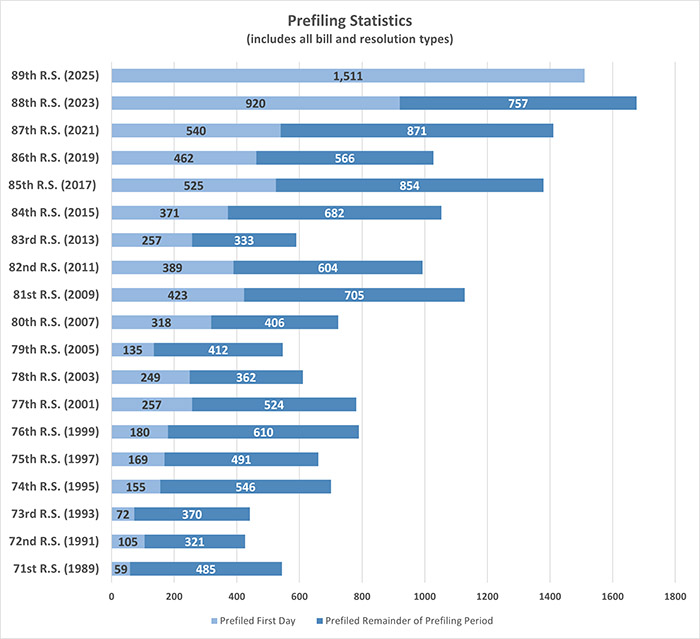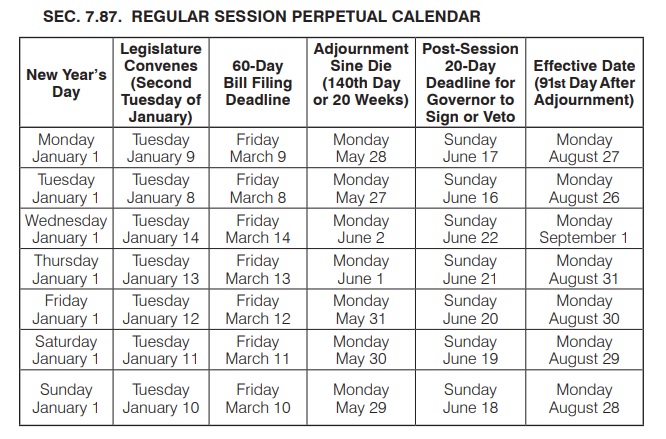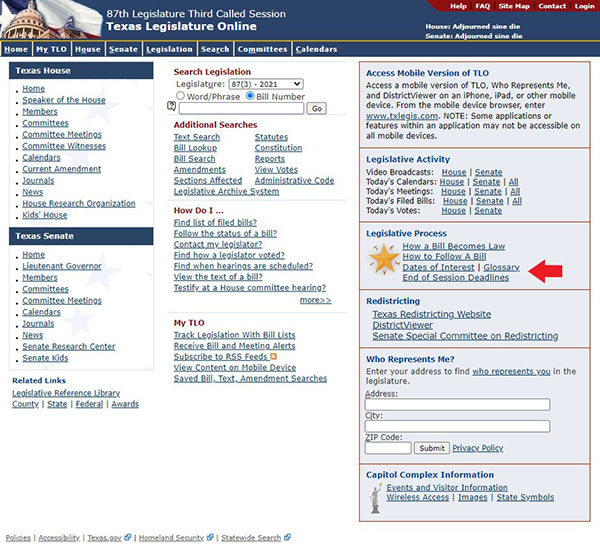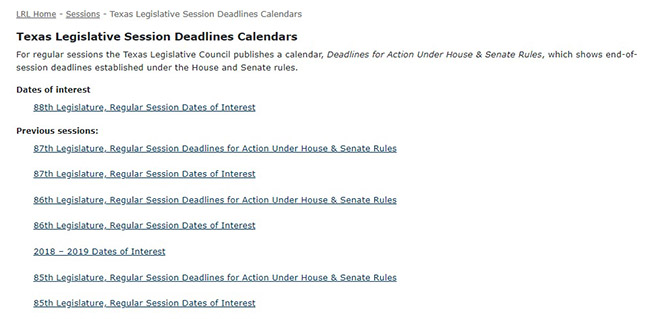The 88th Regular Session ends Monday, May 29, 2023. As the end of session draws near, the following information on conference committees may be helpful.
What is a conference committee?
From the Texas Legislative Glossary (Texas Legislative Council), a conference committee is “A committee composed of five members from each chamber appointed by the respective presiding officers to resolve the differences between the House and Senate versions of a measure when the originating chamber refuses to concur in the changes made by the opposite chamber.”
See also The Legislative Process in Texas (Texas Legislative Council, 2023) for more information on the conference committee process.
How do I know if a bill goes to conference committee?
The bill history or "Actions" list indicates if a bill goes to conference committee. In the list of actions, look for "House appoints conferees" or "Senate appoints conferees." These actions indicate that each chamber has agreed to go to conference committee and has appointed members to the committee. Bill histories can be viewed in Texas Legislature Online on the "History" and "Actions" pages of a bill.

How can I see who was appointed to a particular conference committee?
Conference committee appointees are entered into the Texas Legislature Online system as they are appointed and will be listed on the "History" page of the bill.

When do conference committees meet and are they open to the public?
Formal meeting notices are not always published for conference committee meetings and the meetings generally are not recorded. House Rules, Rule 13, Chapter C, §§ 6-13 and Senate Rules, Article XII address conference committee procedures.
How can I view conference committee reports?
After a conference committee has reached an agreement, a report is submitted to both chambers for approval or disapproval. The report must be accepted by at least three conferees from each chamber and must contain the agreed upon text of the bill, a side-by-side analysis (Ex. HB 5, 87th R.S.) comparing the text of the compromise bill to both the House and the Senate versions, and the signatures of the conferees who approved the report.
Conference committee reports can be found on the Legislative Reference Library website by clicking on "Legislation" on the navigation bar and then "Conference Committee Reports" in the drop-down menu.


Conference committee reports are also available on the "Text" page of a bill in Texas Legislature Online.

What if the conference committee wants to add language to the bill that is not included in either the House or Senate versions?
To add language to the bill that is not included in either the House or Senate versions, the conference committee obtains approval to suspend the language limitation found in the House and Senate rules by passing simple resolutions delineating the information they would like to include. In the bill history of the bill that went to conference committee, look for the actions "House adopts resolution to go outside bounds" and/or "Senate adopts resolution to go outside bounds." See HB 5 (87th R.S.) as an example. HR 1868 (87th R.S.) and SR 516 (87th R.S.) were adopted to add additional language to the conference committee report.
What happens if the conference committee report is not accepted by either chamber?
It may be returned to the same conference committee for further deliberation or the appointment of a new committee may be requested. If an agreement is not reached, the bill will not become law.
If the conference committee report is adopted by both chambers, the bill is enrolled, signed by the presiding officers, and sent to the governor.
What are the deadlines for conference committees?
According to the 88th Legislature, Regular Session Deadlines for Action under House and Senate Rules:
Friday, May 26:
- Before midnight—House copies of conference committee report (CCR) on the general appropriations bill must be distributed (48-hour layout).
- Before midnight—Senate copies of CCRs on tax, general appropriations, and reapportionment bills must be distributed (48-hour layout).
Saturday, May 27:
- Before midnight—House copies of CCRs on joint resolutions and bills other than the general appropriations bill must be distributed (24-hour layout).
- Before midnight—Senate copies of CCRs on joint resolutions and bills other than tax, general appropriations, and reapportionment bills must be distributed (24-hour layout).
Sunday, May 28:
- Last day for House to adopt CCRs or discharge House conferees and concur in Senate amendments.
- Last day for Senate to concur in House amendments or adopt CCRs.
This entry was posted on May 18, 2023 at 9:45 AM and has received 4377 views.
Print this entry.










